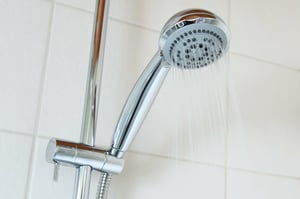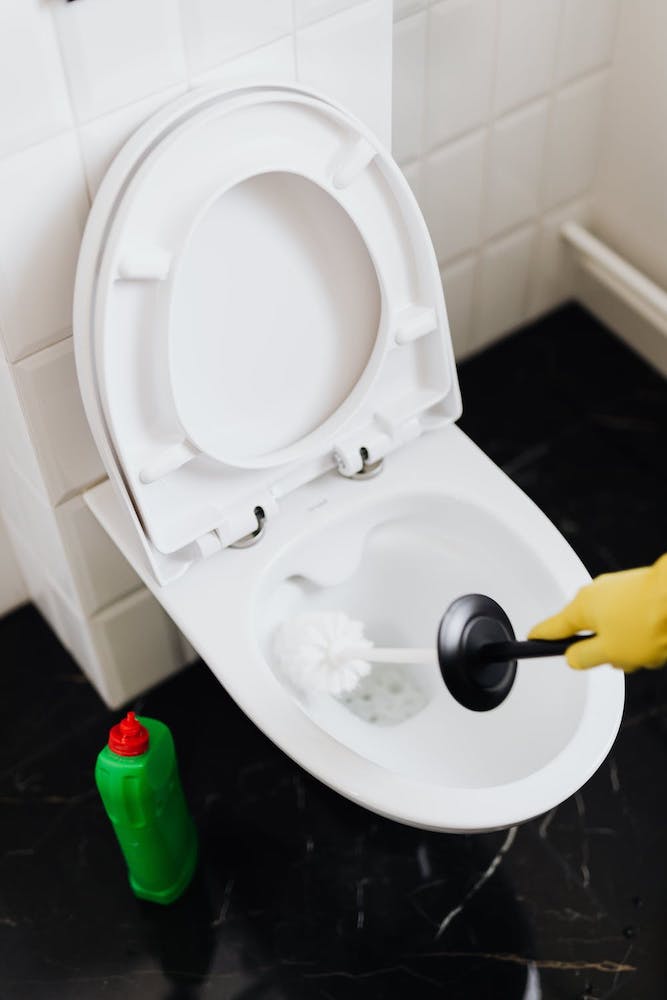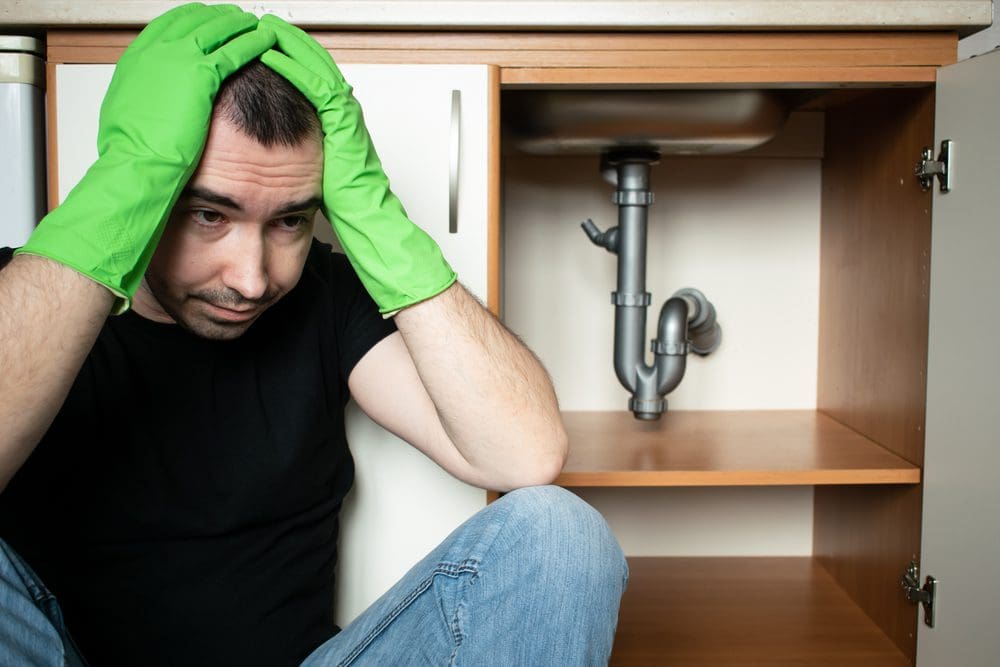Disclosure: This post contains affiliate links and I will be compensated if you make a purchase after clicking through my links. Learn More
Imagine waking up one morning to a flooded bathroom, or worse, a basement filled with water. It sounds like a nightmare, right?
But the truth is, many plumbing disasters are caused by habits that might seem harmless at first. You might be unknowingly putting your plumbing system at risk every day. These bad habits often lead to expensive repairs and major inconveniences.
The good news is that you can change this. By understanding what habits are damaging, you can protect your home and save yourself from headaches down the line. Dive into this article to discover the common mistakes you might be making and learn how to safeguard your plumbing system before it’s too late. Don’t let these simple missteps lead to major plumbing disasters!

Credit: info.kensplumbing.net
Flushing Inappropriate Items
Flushing inappropriate items can severely damage plumbing systems. Items like wipes, cotton balls, and grease cause blockages. Protect your pipes by only flushing toilet paper and human waste.
Flushing inappropriate items can ruin your plumbing system. Many people unknowingly flush things they shouldn’t. These items can cause blockages and damage pipes. Understanding what not to flush helps prevent plumbing issues. Let’s explore some common culprits.
Non-flushable Wipes
Many wipes are labeled flushable. But they don’t break down like toilet paper. They can clog pipes and sewers. It’s best to throw them in the trash. This small step can save you from big plumbing repairs.
Feminine Products
Feminine products are not designed for flushing. They absorb water and expand. This causes blockages in pipes and toilets. Dispose of them in the bin. Keep your plumbing system safe.
Paper Towels And Tissues
Paper towels and tissues don’t dissolve easily. Unlike toilet paper, they stay intact in water. This can lead to clogs and backups. Throw them away instead. Protect your plumbing from unnecessary damage.

Credit: ehretco.com
Pouring Grease Down The Drain
Pouring grease down the drain clogs pipes, leading to costly repairs and plumbing issues. This common habit harms your plumbing system, causing blockages and slow drains over time. Keeping grease out of the sink protects your home’s plumbing and ensures smooth water flow.
Pouring grease down the drain might seem like a harmless habit, but it can wreak havoc on your plumbing system over time. Many people are unaware of the long-term damage this can cause. Understanding how grease behaves in your pipes and learning the right disposal methods can save you from costly repairs and headaches.
How Grease Hardens
When you pour hot grease down the drain, it doesn’t stay liquid forever. As grease cools, it hardens and sticks to the walls of your pipes. This creates a sticky, waxy buildup that narrows the passageway, making it difficult for water and waste to flow freely. Imagine if your arteries were clogged; your plumbing system faces a similar danger. Would you risk it?
Blockages And Clogs
Over time, the hardened grease can attract other debris, leading to stubborn blockages. This can cause water to back up, leading to slow drains and even unpleasant odors. In severe cases, your pipes might completely clog, requiring professional intervention. A friend of mine once ignored this advice, leading to a plumbing bill that could’ve been avoided. Don’t let a bad habit drain your wallet.
Proper Disposal Methods
Instead of pouring grease down the drain, wait for it to cool and harden. Once solid, scrape it into a container or a piece of foil and dispose of it in the trash. You can also use an old coffee can to store used grease. Keep it under the sink and toss it out when full. Taking these simple steps can prevent costly plumbing issues. How do you dispose of grease at home? Your approach could make all the difference.
Using Chemical Drain Cleaners
Using chemical drain cleaners often harms your plumbing system. These cleaners can corrode pipes, leading to leaks. Frequent use might also damage septic systems, creating costly repairs.
Using chemical drain cleaners might seem like a quick fix. But these solutions can harm your plumbing system. Many people rely on them for clogged drains without knowing the risks. Over time, they can cause damage that leads to costly repairs.
Corrosive Effects
Chemical drain cleaners contain harsh substances. These chemicals corrode pipes and fixtures. They eat away at the pipe material, weakening it. The longer chemicals sit in pipes, the more damage they do. Regular use can lead to leaks or bursts.
Impact On Pipes
The strong acids in drain cleaners damage pipes. Older pipes are especially vulnerable. Even newer pipes can suffer when exposed repeatedly. Damage accumulates, causing blockages and reduced water flow. This impacts the entire plumbing system.
Safer Alternatives
There are safer options for clearing clogged drains. Baking soda and vinegar can help. These natural cleaners are gentler on pipes. Drain snakes and plungers can also be effective. Regular maintenance prevents clogs from forming.
Ignoring Small Leaks
Ignoring small leaks in your plumbing system might seem harmless at first, but this oversight can lead to severe consequences over time. It’s easy to dismiss a dripping faucet or a tiny trickle from a pipe, thinking you’ll handle it later. However, these minor issues can escalate quickly, causing significant damage to your home and wallet.
Consequences Of Neglect
Neglecting small leaks can lead to a substantial increase in your water bill. A seemingly insignificant leak can waste gallons of water daily, draining your finances without you even realizing it. It’s also worth considering how these leaks can weaken your plumbing system over time, leading to more complicated and expensive repairs.
Moreover, ignoring these leaks might create a breeding ground for mold and mildew. These unwelcome guests can thrive in damp environments, affecting the air quality in your home and posing health risks to you and your family. Are you willing to pay the price of poor indoor air quality?
Hidden Water Damage
Small leaks can cause damage that you might not see immediately. Behind the scenes, water can seep into walls, floors, and ceilings, leading to structural damage. This hidden water damage can compromise the integrity of your home, potentially leading to costly repairs.
Imagine discovering water-stained ceilings or warped wooden floors because a small leak was left unchecked. Addressing these issues early can save you from substantial headaches and expenses. Can you afford to let small leaks silently sabotage your home?
Timely Repairs
Taking prompt action on small leaks can prevent them from becoming major problems. Regularly inspect your plumbing for signs of drips and dampness. If you spot any issues, fix them immediately or call a professional to ensure they are properly handled.
Think about it: a quick fix now can save you from a significant repair job later. Timely repairs are not just about preserving your home; they are about peace of mind. Why not take a proactive approach to protect your investment?
By addressing small leaks promptly, you can maintain the health of your plumbing system and avoid the costly repercussions of neglect. It’s about being vigilant and responsible. Are you ready to take control of your plumbing health?
Misusing Garbage Disposal
Improper use of garbage disposal can lead to plumbing issues. Tossing fibrous foods and greasy leftovers clog pipes. Damaged disposals strain systems and require costly repairs.
Misusing your garbage disposal can quietly wreak havoc on your plumbing system. Many people use it as a catch-all for anything they want to disappear. However, treating your disposal like a trash can is a costly mistake. Understanding what it can and cannot handle could save you from future plumbing disasters. Let’s dive into some common misuse cases and how to avoid them.
Hard And Fibrous Foods
Grinding hard and fibrous foods in your garbage disposal seems harmless. But items like bones, fruit pits, or corn husks can dull blades and strain the motor. You might think small pieces are fine, but they can accumulate, creating blockages. Ever had your disposal jam when you least expect it? That’s the result of these items.
Non-food Items
Your garbage disposal isn’t meant for non-food items. Items like paper towels, cigarette butts, or rubber bands can damage the motor and blades. Despite being small, these items can cause significant plumbing issues. Imagine the frustration of dealing with a clogged sink because of a stray twist tie.
Proper Usage Tips
To extend the life of your garbage disposal, be mindful of what you put in it. Always run cold water while using it. This helps solidify any grease, allowing it to be chopped up and flushed away. Cut larger food waste into smaller pieces before putting them in. This reduces the strain on the system.
Wondering if an item is safe? When in doubt, throw it out or compost it instead. Have you checked your garbage disposal manual recently? It often contains a helpful list of do’s and don’ts. Taking a few minutes to review it might save you from an unexpected repair bill.
High Water Pressure
High water pressure feels great in the shower. Yet, it harms your plumbing system. Many homeowners don’t realize its impact. Pipes, fittings, and appliances suffer from excess pressure. This results in leaks and costly repairs.
Strain On Pipes
High pressure puts extra strain on pipes. Over time, this causes them to weaken. Weak pipes burst or leak, leading to water damage. Regular checks can prevent these problems.
Pressure Regulation
Regulating water pressure extends your plumbing’s lifespan. Keeping it within safe limits is crucial. Most experts recommend 40 to 60 PSI. This range protects your pipes and appliances.
Installing Pressure Reducers
Pressure reducers help manage high water pressure. They are devices installed in your plumbing system. With proper installation, they adjust pressure to safe levels. This simple step prevents future plumbing issues.
Neglecting Regular Maintenance
Skipping regular maintenance leads to plumbing issues. Pipes can leak and drains might clog. Regular checks prevent costly repairs.
Neglecting regular maintenance is one of the most common bad habits that can lead to plumbing disasters. Many homeowners overlook the need for routine checks, assuming that if everything seems fine, there’s no need to worry. However, this neglect can result in unexpected repairs and costly damages.
Importance Of Inspections
Regular inspections are crucial for identifying small issues before they balloon into big problems. A simple check-up could reveal hidden leaks or early signs of pipe corrosion. Have you ever considered how a minor drip can escalate into a full-blown water damage nightmare? Inspections also help in assessing the condition of your pipes and fixtures. It’s like visiting the dentist; you might not feel any pain, but a professional can spot a cavity early. Make it a habit to schedule plumbing inspections at least once a year.
Routine Cleaning
Routine cleaning keeps your plumbing in top shape and prevents blockages. Think about all the things that go down your drains daily—hair, soap, food particles. Without regular cleaning, these can accumulate and cause stubborn clogs. Use simple methods like pouring hot water down the drain weekly to clear minor buildup. Consider using a mixture of baking soda and vinegar for a natural cleaning solution. Are you doing enough to keep your drains clear?
Preventive Measures
Prevention is always better than repair, especially with plumbing. Insulating exposed pipes can prevent freezing during winter, saving you from burst pipes. Are your pipes ready for the colder months? Installing drain strainers is another effective preventive measure. They catch debris before it enters your plumbing system, reducing the risk of clogs. Have you installed strainers in your sinks and showers?
By making regular maintenance a priority, you can extend the life of your plumbing system and avoid expensive repairs. The peace of mind from knowing your plumbing is in good health is worth the effort. Are you ready to take charge of your plumbing maintenance?

Credit: www.elitecustomservices.com
Wrong Pipe Usage
Wrong pipe usage can cause serious plumbing issues. Using the incorrect pipes or materials leads to costly repairs. Many homeowners unknowingly make this mistake. Understanding the correct usage of pipes is crucial. It ensures a safe and efficient plumbing system.
Mixing Metal And Plastic
Combining metal and plastic pipes is a common error. This can lead to leaks and corrosion. Metal expands and contracts differently than plastic. This difference causes joints to weaken over time. Ensure compatibility when connecting different pipe types.
Choosing The Right Materials
Selecting the proper materials prevents plumbing mishaps. Copper pipes are ideal for hot water lines. PVC is suitable for drain lines. Each material has a specific purpose. Research before selecting pipes for your home. The right choice keeps your plumbing system running smoothly.
Professional Advice
Consult a professional plumber for guidance. They have the expertise to choose the right pipes. Professionals know which materials suit your specific needs. They prevent costly mistakes. Rely on their knowledge for a reliable plumbing system.
Final Words
Avoiding bad habits keeps your plumbing system healthy and efficient. Simple changes can prevent costly repairs. Always dispose of waste properly. Regular maintenance checks catch small issues early. Educate household members on proper plumbing use. These steps save you time and money.
Consistent care ensures a smooth-running system. Remember, prevention is better than fixing problems later. A little effort now protects your home in the long run. Keep your plumbing in top shape. Your future self will thank you.


